Kyle Rittenhouse trial: Prosecution begins to present its case

1st day of Kyle Rittenhouse trial testimony wraps up in Kenosha
Kyle Rittenhouse, now 18, is charged with killing two men and wounding a third during the summer of 2020. The one-time police youth cadet could get life in prison if convicted.
KENOSHA, Wis. - Jurors heard starkly different portrayals of Kyle Rittenhouse — instigator or victim — in opening statements Tuesday at his trial on charges of shooting three men on the streets of Kenosha during a turbulent protest against racial injustice.
A prosecutor said Rittenhouse set the bloodshed in motion when he started a confrontation with the first man gunned down that night, and killed him with a bullet to the back.

Prosecution opening statement in Kyle Rittenhouse trial
The prosecution team presented its opening statement in the Kyle Rittenhouse trial on Tuesday morning, Nov. 2.
But Rittenhouse's attorney told the jury that his client acted in self-defense after the first man tried to grab Rittenhouse's gun and others kicked him in the face and clubbed him in the head with a skateboard.
"You as jurors will end up looking at it from the standpoint of a 17-year-old under the circumstances as they existed," said Mark Richards, defense attorney.

Defense presents its opening statement in Kyle Rittenhouse trial
The defense presented its opening statement in the Kyle Rittenhouse trial. WARNING: Some of the language in this presentation is not suitable for all viewers.
Rittenhouse, now 18, is charged with killing two men and wounding a third on Aug. 25, 2020 with an assault-style rifle. The one-time aspiring police officer could get life in prison if convicted.
The teenager traveled to Kenosha from his home in Illinois, just across the Wisconsin state line, after protests broke out over the shooting of a Black man, Jacob Blake, by a white Kenosha police officer. Rittenhouse said he went there to protect property after two nights in which rioters set fires and ransacked businesses.
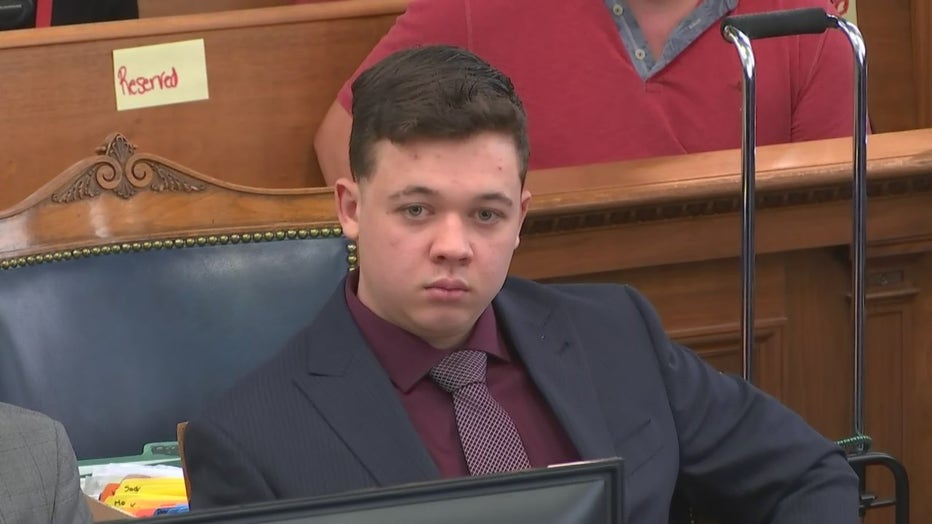
Kyle Rittenhouse
The state's first witness was Rittenhouse's sister's boyfriend at the time, Dominick Black, who bought the rifle for Rittenhouse months before the shootings because he was not old enough to own one at the time.
Black testified that he and Rittenhouse went to downtown Kenosha to help protect a car dealership from property damage, after cars at another lot owned by the same business were burned the night before. Black said he thought nobody would start trouble if they saw him with his assault-style rifle.
Black said he was on the rooftop when he heard gunshots but didn't know Rittenhouse was involved until Rittenhouse called and said, "I shot somebody, I shot somebody."
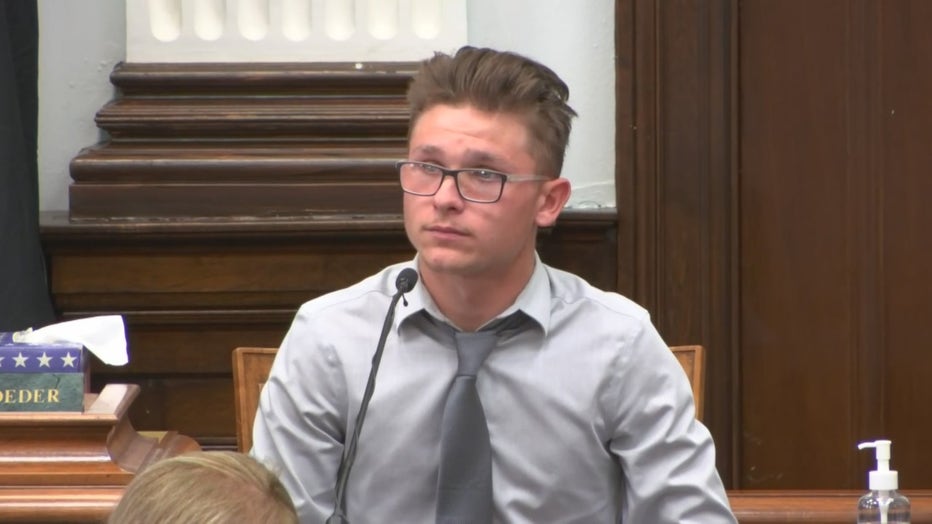
Dominick Black
Afterward, Black said, Rittenhouse was "freaking out. He was really scared. He was pale, shaking a lot." Black said Rittenhouse told him that he acted in self-defense because "people were trying to hurt him."
In his opening statement, prosecutor Thomas Binger described the unrest in Kenosha as "two of the roughest nights that our community has ever seen," and said outsiders were drawn to the city "like moths to a flame."
Yet Binger repeatedly stressed that amid the hundreds of people in Kenosha and the anger and chaos in the streets, "the only person who killed anyone is the defendant, Kyle Rittenhouse."
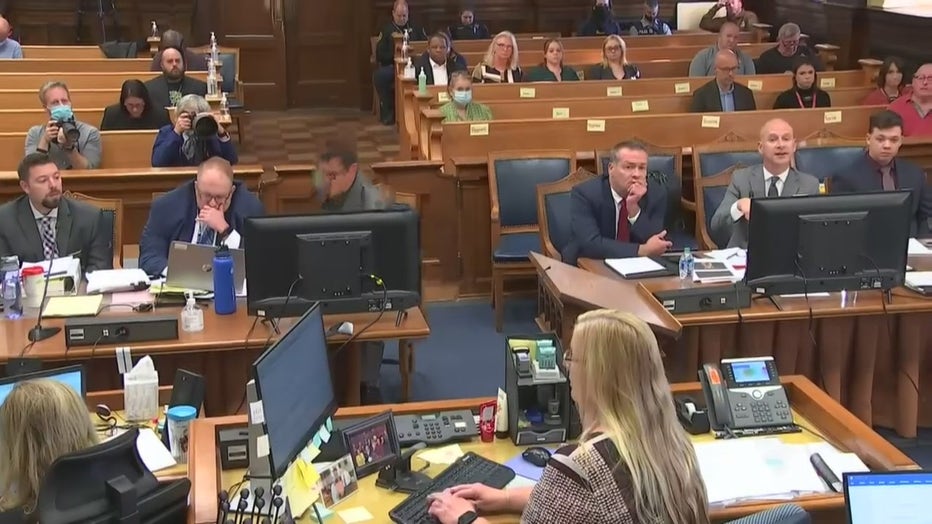
Kyle Rittenhouse trial
"When we consider the reasonableness of the defendant’s actions, I ask you to keep this in mind," Binger said, after explaining to the jury that a claim of self-defense can be valid only if Rittenhouse reasonably believed he was using deadly force to prevent imminent death or great bodily harm.
The prosecutor said that it is not known exactly what words were said, but it is clear that Rittenhouse started a confrontation that caused the first person shot that night, Joseph Rosenbaum, to begin chasing Rittenhouse across a parking lot.
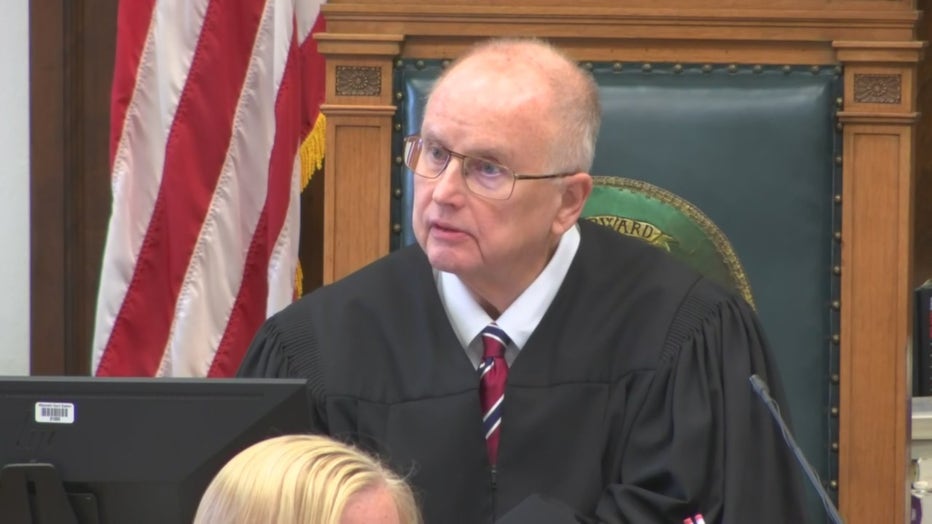
Judge Bruce Schroeder
Binger emphasized, too, that Rosenbaum, 36, was killed by a shot to the back after he threw a plastic bag. The prosecutor noted that the first two bullets hit Rosenbaum in the lower extremities, causing him to fall forward.
SIGN UP TODAY: Get daily headlines, breaking news emails from FOX6 News
Richards, the defense attorney, argued that it was Rosenbaum who "lit the fuse that night." Rosenbaum yelled an expletive at Rittenhouse and lunged for his gun before Rittenhouse fired at him, according to the defense.
Rittenhouse fired four shots in less than a second because Rosenbaum was "trying to take Kyle’s weapon from him to use against him," Richards said. "Kyle is afraid he is going to be disarmed and shot with his own weapon."
Richards told jurors in his opening statement that Rittenhouse's actions on Aug. 25 were reasonable under the circumstances as they existed.
Binger, the prosecutor, said that after shooting Rosenbaum, Rittenhouse fled the scene instead of rendering aid, despite portraying himself as a medic earlier in the night. But Richards said Rittenhouse didn’t stop to help because the crowd wanted to "kill him," and instead ran toward police.
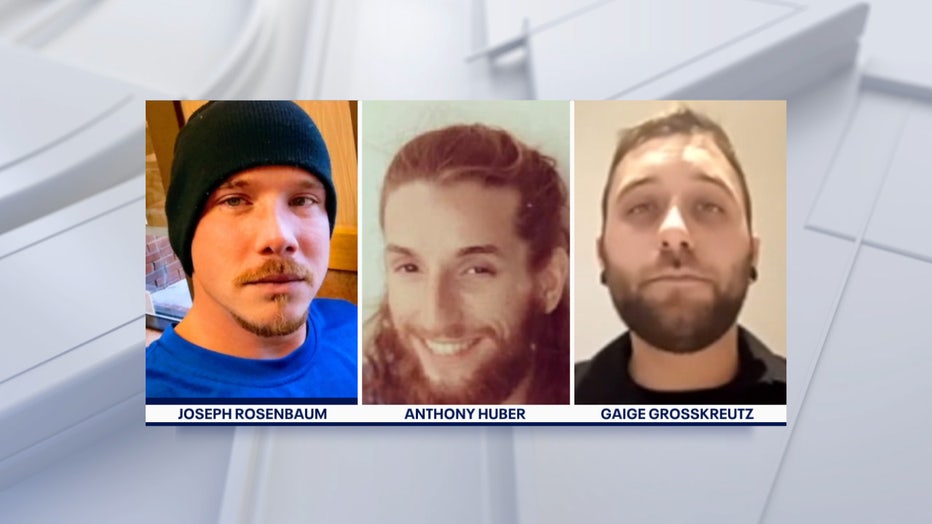
The crowd at that point clearly believed Rittenhouse was an active shooter, according to the prosecutor.
The defense also apparently pushed back against the notion that Rittenhouse was an outsider drawn to Kenosha by a call to arms on right-wing social media. Richards said Rittenhouse had strong ties to Kenosha – his father lived there and Rittenhouse worked in Kenosha County as a lifeguard – and had seen livestreams of what was happening.
As his attorney displayed photos and video clips from the night of the shootings, Rittenhouse, wearing a dark pinstriped suit and tie, leaned on his elbows to view the images on a desktop monitor. He sat ramrod straight as audio of gunfire was played, and occasionally turned toward jurors, seeming to scrutinize their reactions.
His mother, Wendy Rittenhouse, sat behind him.
FREE DOWNLOAD: Get breaking news alerts in the FOX6 News app for iOS or Android
The most serious count against Rittenhouse, first-degree intentional homicide, is Wisconsin’s top murder charge.
Rittenhouse has been painted by supporters on the right — including foes of the Black Lives Matter movement — as a patriot who took a stand against lawlessness by demonstrators and exercised his Second Amendment gun rights. Others see him as a vigilante and police wannabe.
He is white, as were those he shot, but many activists see race as an underlying issue in the case, in part because the protesters were on the streets to decry police violence against Black people.
Associated Press contributed to this report.

